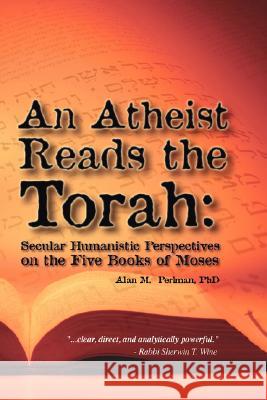An Atheist Reads the Torah: Secular Humanistic Perspectives on the Five Books of Moses » książka
An Atheist Reads the Torah: Secular Humanistic Perspectives on the Five Books of Moses
ISBN-13: 9781412083010 / Angielski / Miękka / 2006 / 248 str.
This is a very different sort of book on the Torah. It approaches the Torah with no awe or reverence, but with a linguist's sensitivity to language and linguistic processes - and a secular humanist's dispassionate curiosity about the central symbol of the Jewish people.
The book tells readers exactly what is in the Torah, to the extent that we can determine it. It presents the reader with a clear demarcation between translation and inference - between what the translated text actually says...and what rabbis and other Torah enthusiasts typically say that it says.
It questions centuries of Torah (and, by extension, Bible) reverence and proves, with actual Torah citations, that the supposed wisdom of the Torah is mostly the product of "rabbinical spin" - the process of transforming the simple, ancient (and in many places well-meaning) Torah text into a document of immense profundity and relevance to our times.
In one chapter, the book compares actual Torah text to a learned rabbi's statements about what the text says and means. It shows how the rabbi freely mixes his own metaphors and interpretations - and sometimes his outright inventions of material - together with paraphrases and quotes of actual Torah content, thereby giving the impression that the document says what it does not say.
This chapter reveals the elements of rabbinical spin and challenges the intellectual legitimacy of the tradition that identifies all this commentary and inference with "what the Torah says."
Other chapters evaluate the personality and character of God (not so good) and the relevance of the Torah's laws to contemporary society (not much).
The concluding chapter discusses the purposeof religion and argues that the secular humanistic view of the Torah is consonant with such humanistic virtues as dignity, intellectual integrity, courage, and the humanist's respect for science and reason, while the traditional attitude toward the Torah is a denial of these qualities.
The purpose of the book is to let readers know what the Torah really says, so that they can decide for themselves what its place should be in their lives.











